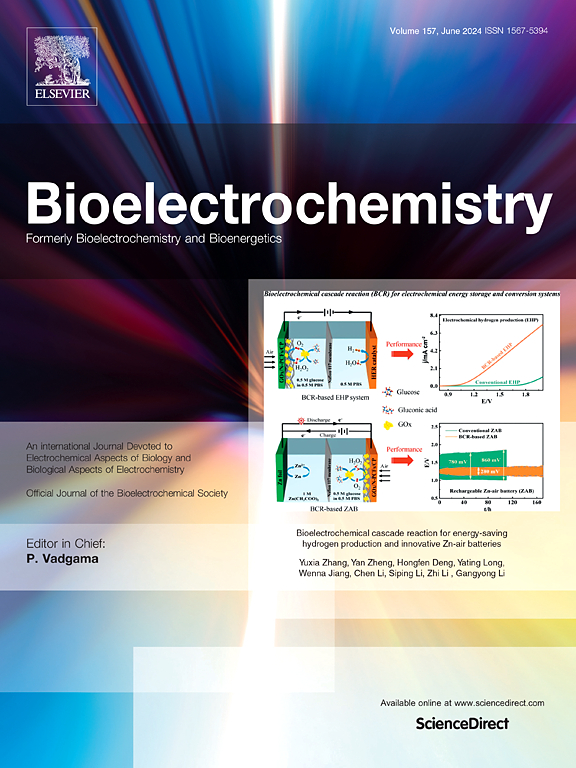Shared genetic risk and causal associations between Post-traumatic stress disorder and migraine with antithrombotic agents and other medications
IF 3.6
2区 医学
Q1 NEUROSCIENCES
引用次数: 0
Abstract
Post-traumatic stress disorder (PTSD) is a psychiatric disorder that frequently co-occurs with pain disorders including migraine. There are proposed biological, genetic and environmental factors associated with both PTSD and migraine suggesting shared etiology. Genome-Wide Association Studies (GWAS) have been used to identify genomic risk loci associated with various disorders and to investigate genetic overlap between traits. There is a significant genetic correlation between PTSD and migraine with no evidence of a causal relationship that could be attributed to pleiotropy. Cross-disorder genetic analyses were applied to investigate the genetic overlap and causal associations using GWAS summary statistics of PTSD (n = 214408), migraine (n = 873341) and 23 medication use traits (n = 78808–305913) including anti-depressants, anti-migraine preparations and beta-blocking agents.
Across the entire genome, anti-thrombotic agents had a significant and negative genetic correlation with PTSD (rG = −0.2, PFDR = 0.032) and a positive genetic correlation with migraine (rG = 0.26, PFDR = 2.23 x 10−8). PTSD showed significant genetic correlation with 11 other medication use traits including beta blocking agents (rG = −0.11, PFDR = 0.034). Of the 2495 genomic regions tested, PTSD showed significant local genetic correlation with 12 medication use traits at 43 loci; while migraine showed significant genetic correlation with only anti-inflammatory agents and anti-rheumatic products at locus 12:57522282–57607142 (DAB1) (P < 2 x 10−5). The genetic liability to PTSD had a causal effect on increased risk of using pain medication such as opioids (βivw = 0.59, P = 5.21 x 10−5) while the genetic liability to migraine had a causal effect on the increased risk of using anti-thrombotic agents (βivw = 0.59, P = 1.69 x 10−7). The genes in the genomic regions shared between PTSD and medication use traits were enriched in neural-related pathways such as neuron development, neurogenesis and protein kinase activity. These results provide further insight into the genetically controlled biological and environmental factors underlying the shared etiology between PTSD and migraine. The identified biomarkers can be used as a basis for investigation as potential drug targets for both disorders. These findings are significant for drug re-purposing and treatment of PTSD and migraine using monotherapy.
抗血栓药物和其他药物在创伤后应激障碍和偏头痛之间的共同遗传风险和因果关系。
创伤后应激障碍(PTSD)是一种精神障碍,经常与偏头痛等疼痛障碍共同发生。目前提出的生物、遗传和环境因素与创伤后应激障碍和偏头痛有关,这表明它们有共同的病因。全基因组关联研究(GWAS)已被用于识别与各种疾病相关的基因组风险位点,并研究性状之间的遗传重叠。创伤后应激障碍和偏头痛之间存在显著的遗传相关性,但没有证据表明其与多效性之间存在因果关系。交叉障碍遗传分析应用GWAS汇总统计研究PTSD (n = 214408)、偏头痛(n = 873341)和23种药物使用特征(n = 78808-305913)(包括抗抑郁药、抗偏头痛制剂和β -阻滞剂)的遗传重叠和因果关系。在整个基因组中,抗血栓药物与PTSD具有显著的负遗传相关性(rG = -0.2, P FDR = 0.032),与偏头痛具有正遗传相关性(rG = 0.26, P FDR = 2.23 × 10-8)。PTSD与包括阻断剂在内的其他11种药物使用特征具有显著的遗传相关性(rG = -0.11, P FDR = 0.034)。在测试的2495个基因组区域中,PTSD与43个位点的12个药物使用特征显示出显著的局部遗传相关性;而偏头痛仅与抗炎药和抗风湿药物在基因座12:57522282-57607142 (DAB1) (P -5)有显著的遗传相关性。PTSD遗传倾向与阿片类药物使用风险增加有因果关系(β ivw = 0.59, P = 5.21 x 10-5),偏头痛遗传倾向与抗血栓药物使用风险增加有因果关系(β ivw = 0.59, P = 1.69 x 10-7)。在创伤后应激障碍和药物使用特征之间共享的基因组区域中,基因在神经元发育、神经发生和蛋白激酶活性等神经相关途径中富集。这些结果为PTSD和偏头痛之间共同病因的遗传控制的生物和环境因素提供了进一步的见解。鉴定的生物标志物可作为研究这两种疾病的潜在药物靶点的基础。这些发现对药物再利用和使用单一疗法治疗PTSD和偏头痛具有重要意义。
本文章由计算机程序翻译,如有差异,请以英文原文为准。
求助全文
约1分钟内获得全文
求助全文
来源期刊

Neurobiology of Stress
Biochemistry, Genetics and Molecular Biology-Biochemistry
CiteScore
9.40
自引率
4.00%
发文量
74
审稿时长
48 days
期刊介绍:
Neurobiology of Stress is a multidisciplinary journal for the publication of original research and review articles on basic, translational and clinical research into stress and related disorders. It will focus on the impact of stress on the brain from cellular to behavioral functions and stress-related neuropsychiatric disorders (such as depression, trauma and anxiety). The translation of basic research findings into real-world applications will be a key aim of the journal.
Basic, translational and clinical research on the following topics as they relate to stress will be covered:
Molecular substrates and cell signaling,
Genetics and epigenetics,
Stress circuitry,
Structural and physiological plasticity,
Developmental Aspects,
Laboratory models of stress,
Neuroinflammation and pathology,
Memory and Cognition,
Motivational Processes,
Fear and Anxiety,
Stress-related neuropsychiatric disorders (including depression, PTSD, substance abuse),
Neuropsychopharmacology.
 求助内容:
求助内容: 应助结果提醒方式:
应助结果提醒方式:


